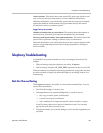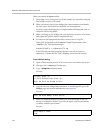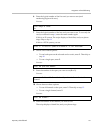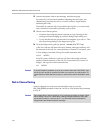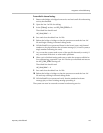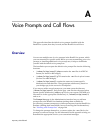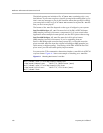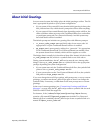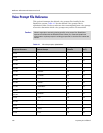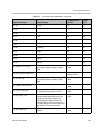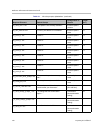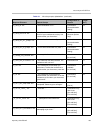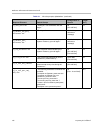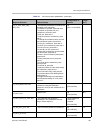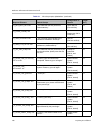
Voice Prompts and Call Flows
Proprietary & Confidential 181
About Initial Greetings
In a non-routed system, the bridge plays the initial greeting to callers. The file
that’s appropriate depends on your system configuration:
• If your system is Non-routed Private, then the initial greeting is always the
helo_inbound.wav file, which doesn’t prompt the caller to enter anything.
• If your system is Non-routed Shared, then, depending on the call flow, the
caller could have either an access code (Traditional Shared) or a subscriber
or participant password (Two-Password Shared). And the system may
have both those call flows enabled.
The default prompt set includes two greeting files with different prompts:
•
cr_access_code_prompt.wav
specifically asks for an access code. It’s
appropriate if only the Traditional Shared call flow is enabled.
•
pw_prompt.wav
is more generic, asking for a “passcode.” It’s appropriate
if both Traditional Shared and Two-Password Shared are enabled, since
the system doesn’t know initially which call flow applies to a caller.
The bridge doesn’t actually look for either of those files. Instead, it looks for the
cr_code_prompt.wav
file, which is a symbolic link to one of the above.
During system installation, the
tnl_mkln
script must be run. Among other
things, it sets up
cr_code_prompt.wav
as a symbolic link to the appropriate
prompt, depending on system configuration:
• If your system uses only the Traditional Shared call flow, the symbolic link
points to the
cr_access_code_prompt.wav
file.
• If your system also uses the Two-Password Shared call flow, the symbolic
link points to the
pw_prompt.wav
file.
If you ever change those call flow settings, add prompt sets, or set up custom
greetings, you must run the
tnl_mkln
script again so that it can change the
symbolic links, if necessary, or add them for the new prompt sets or custom
greetings.
In the case of custom greetings (see “Customizing Greetings and Related
Messages” on page 169), the
tnl_mkln
script creates a symbolic link for each
DNIS for which it finds the target file.
For instance, if the
/rahome/bridge/sound/greetings/adpcm
directory
contains a file named
1234gencode_prompt.wav
(and the Two-Password
Shared call flow is enabled), the
tnl_mkln
script creates a symbolic link to it
named
1234pass_access_code.wav
.



